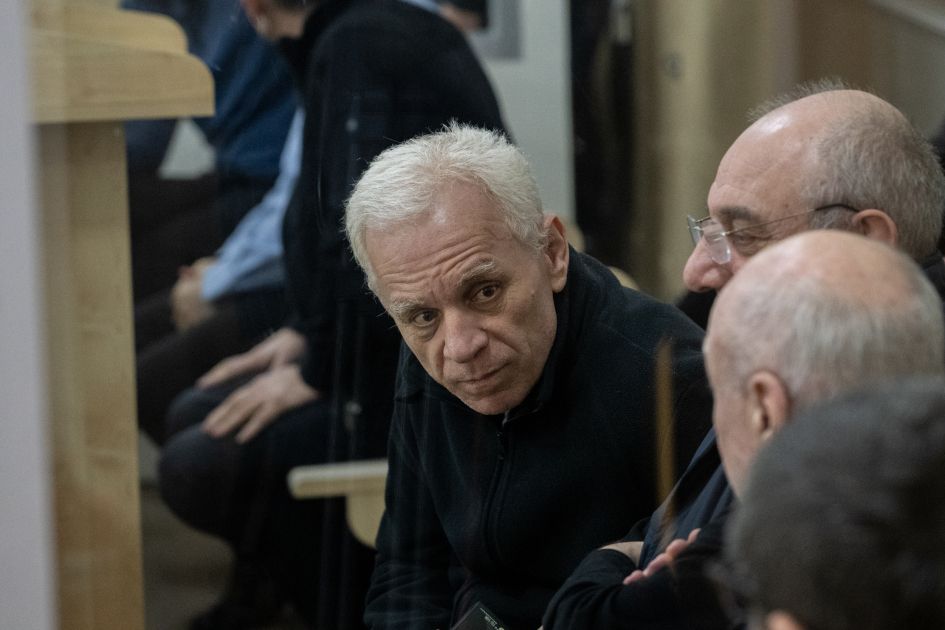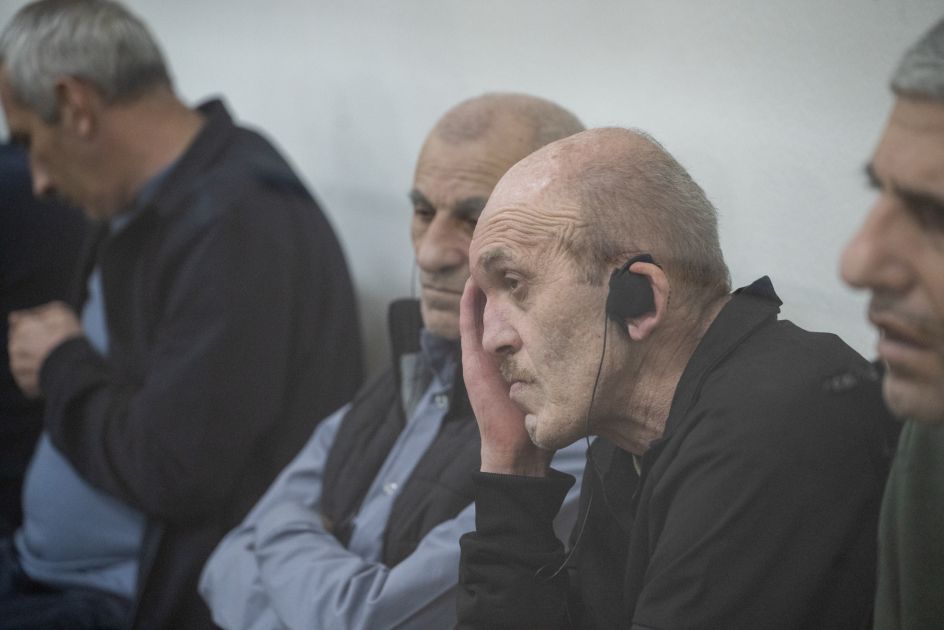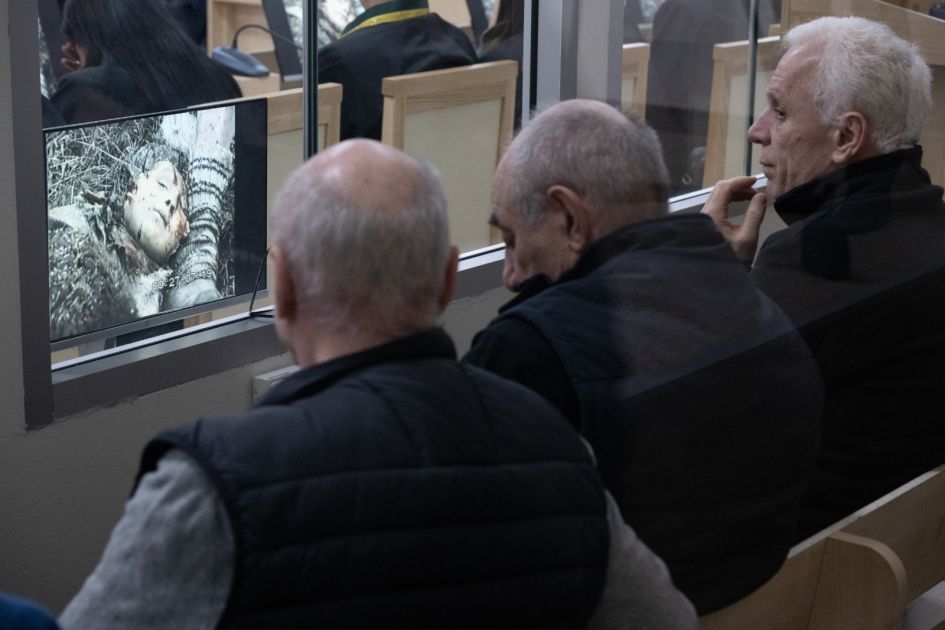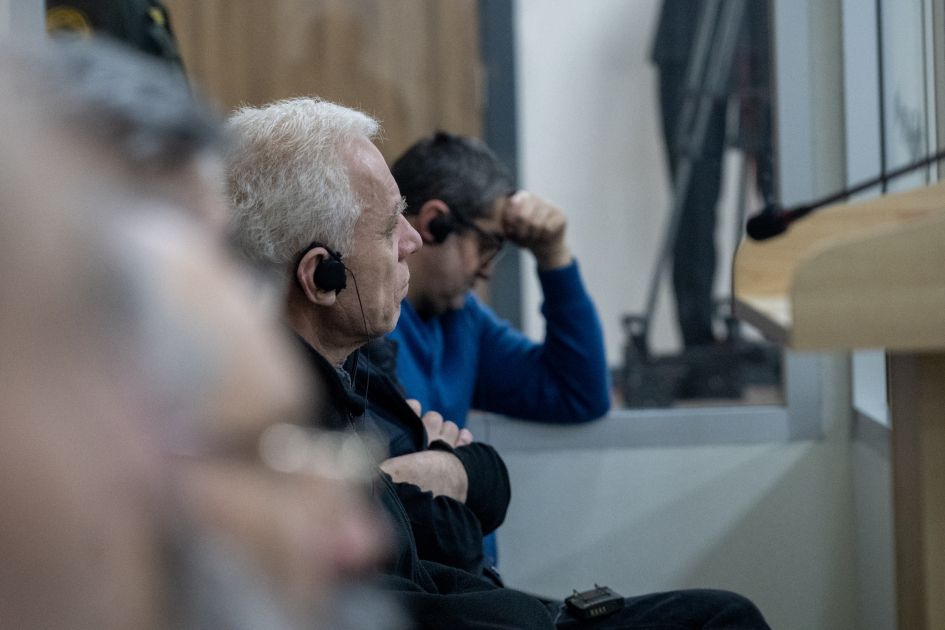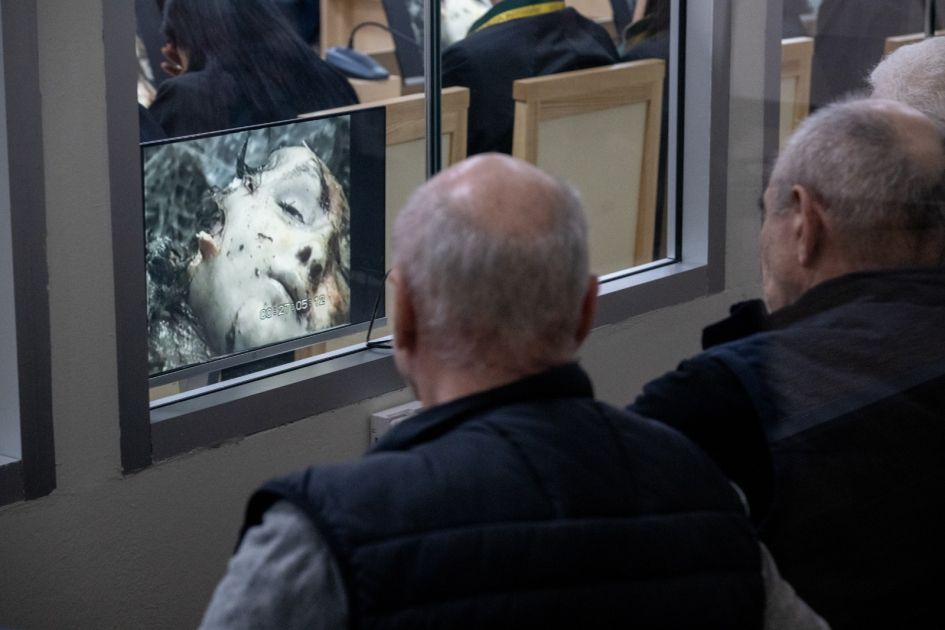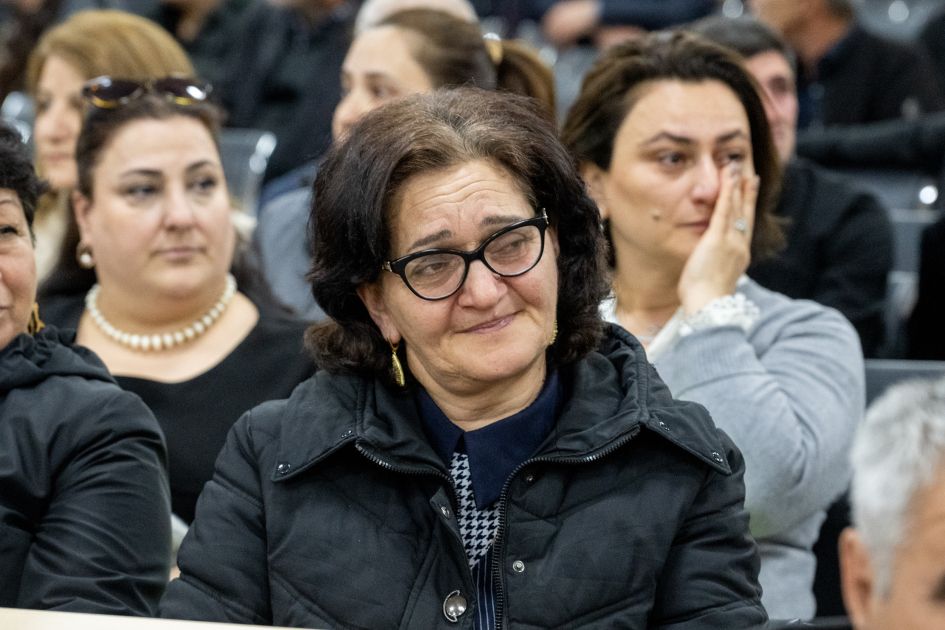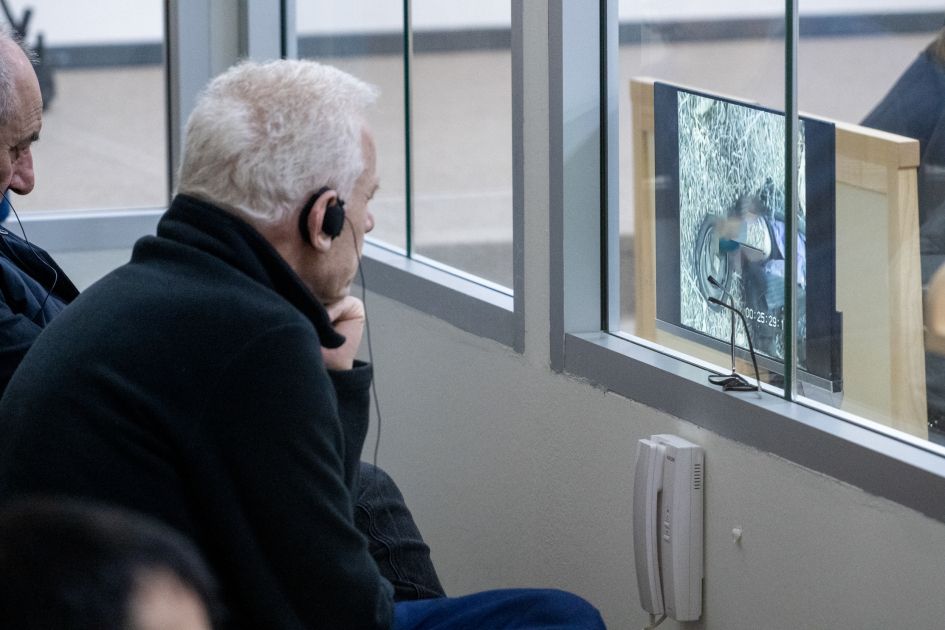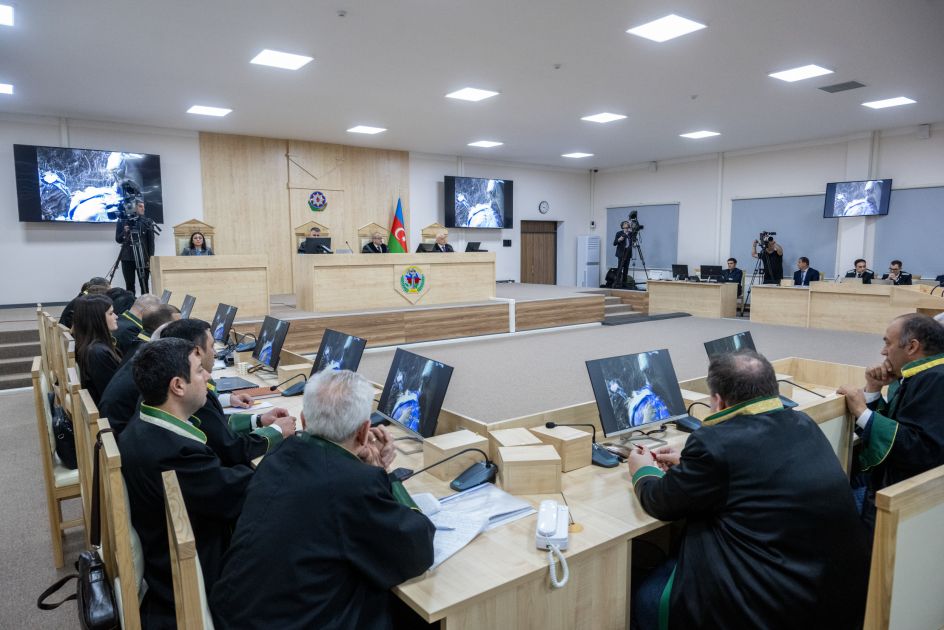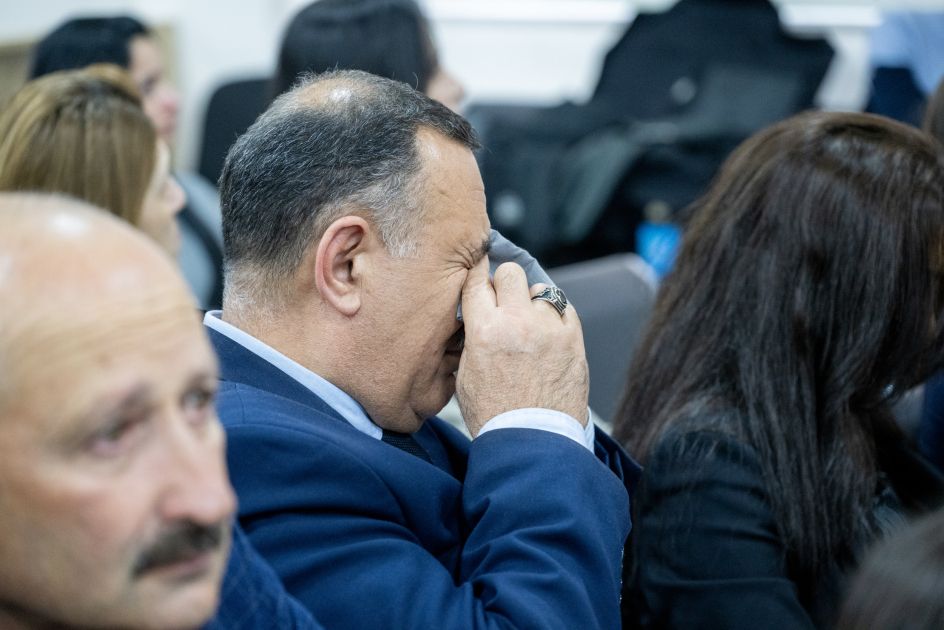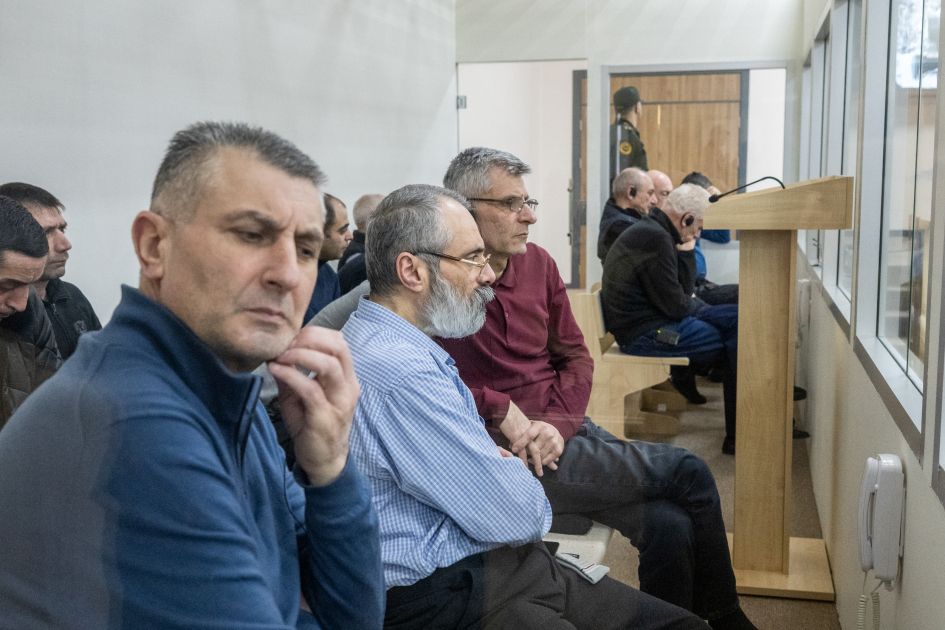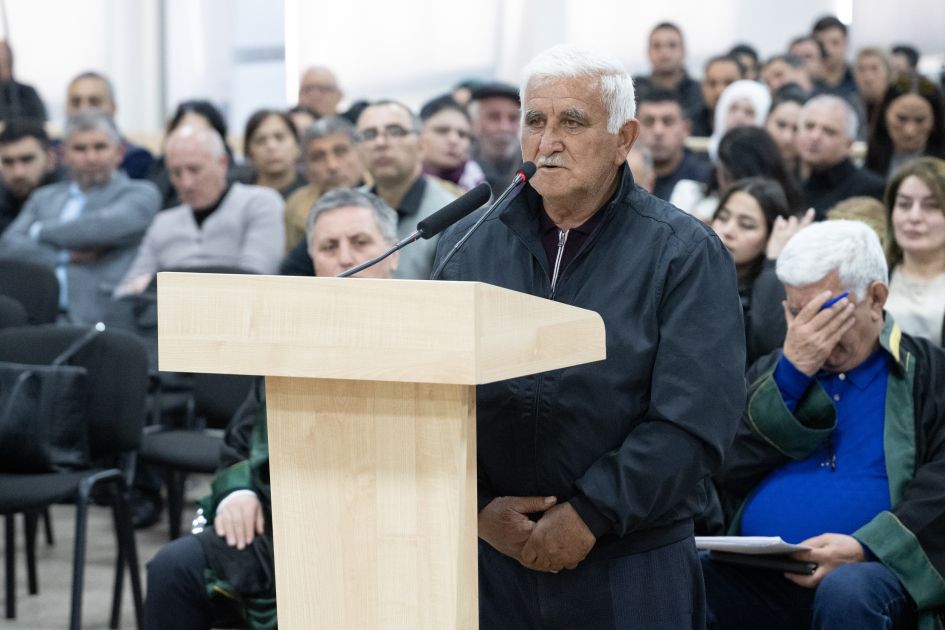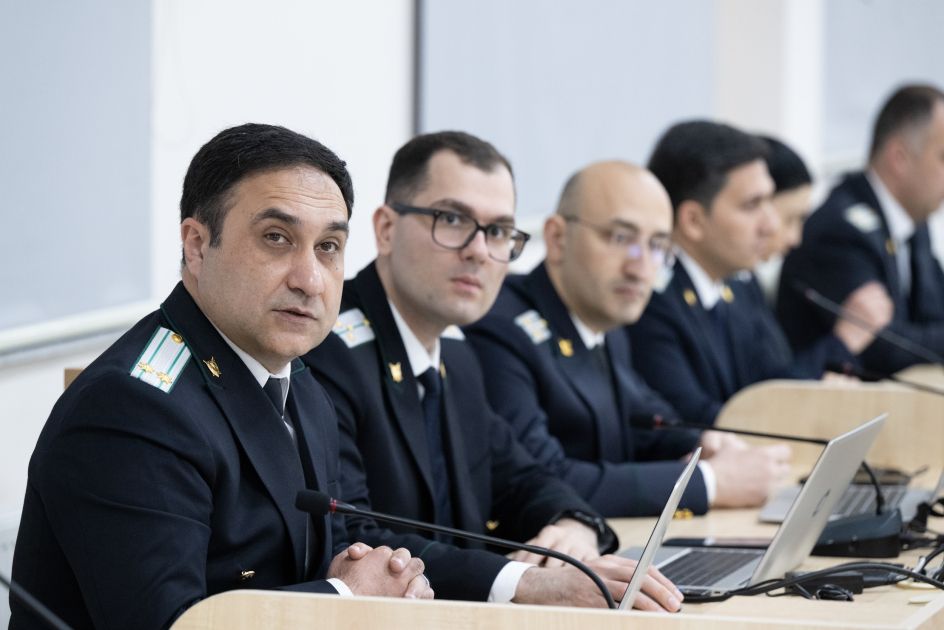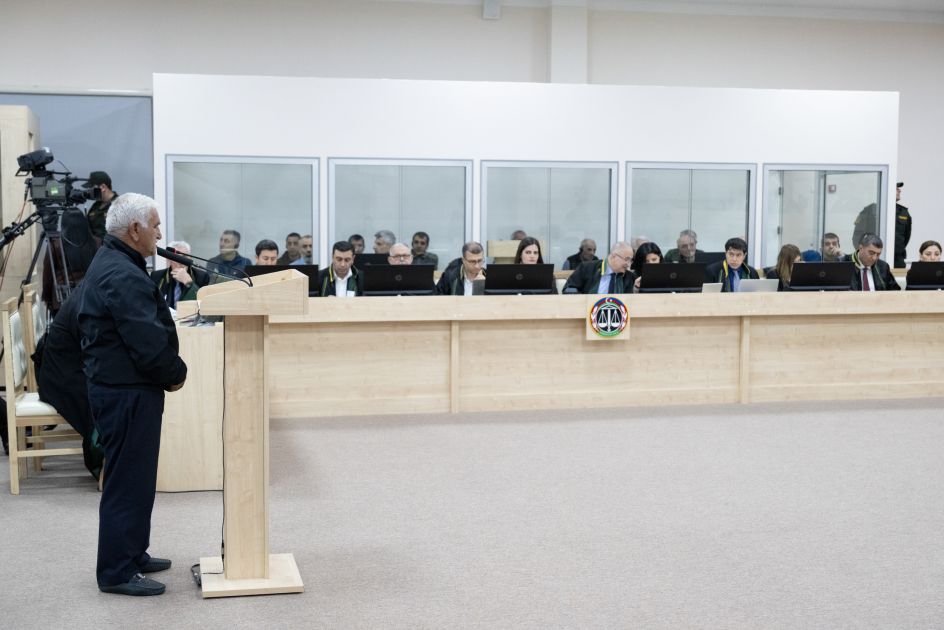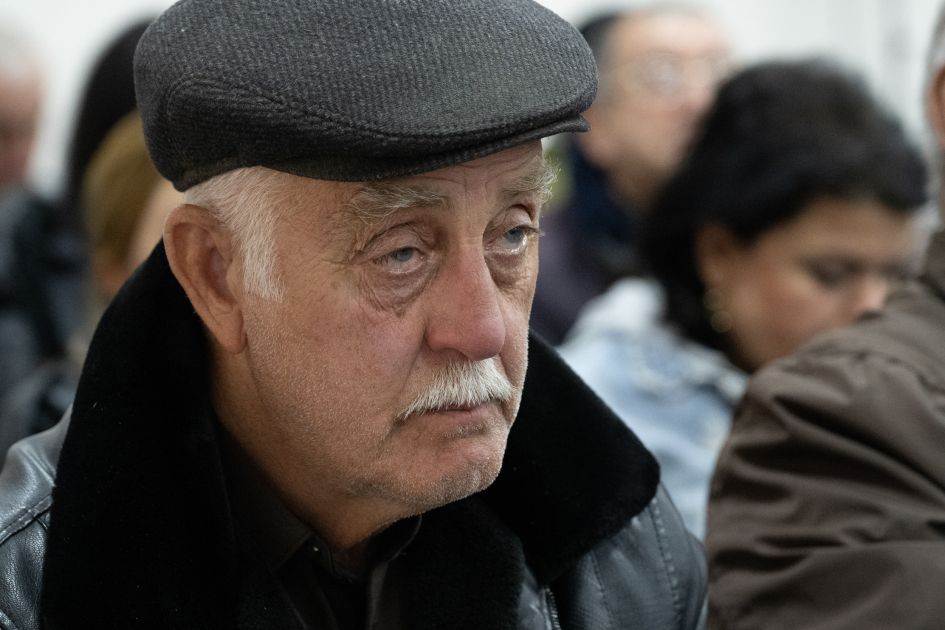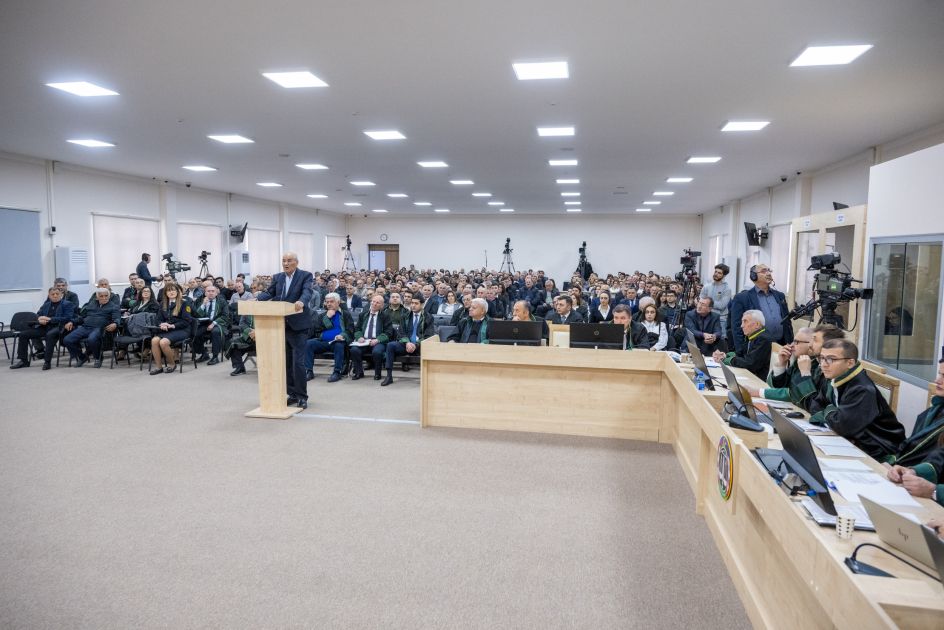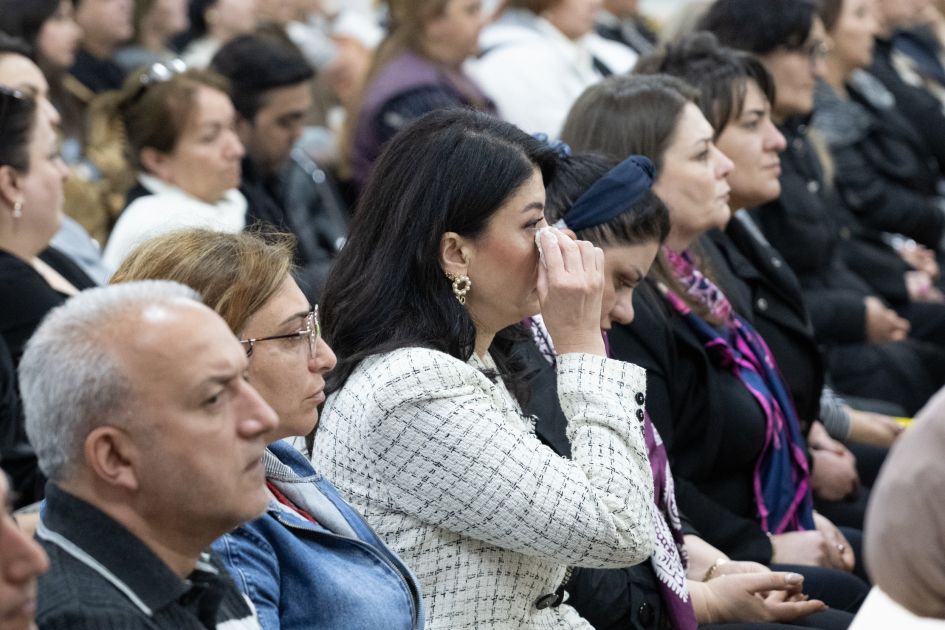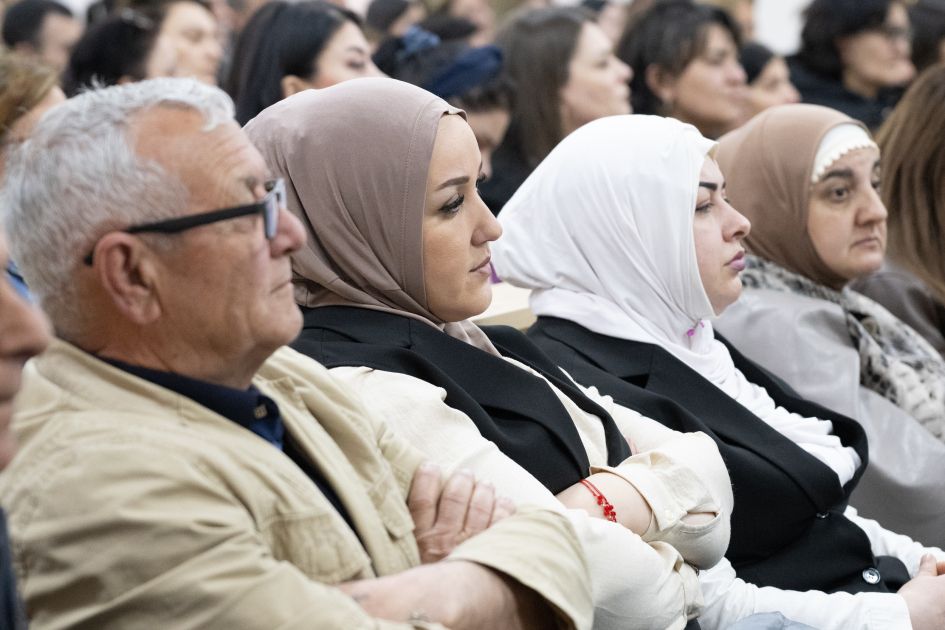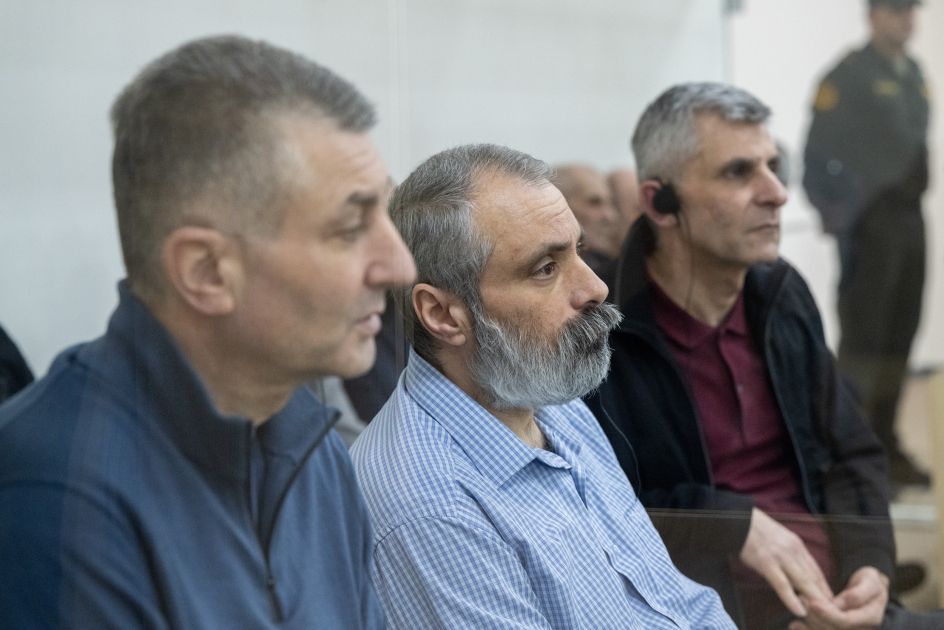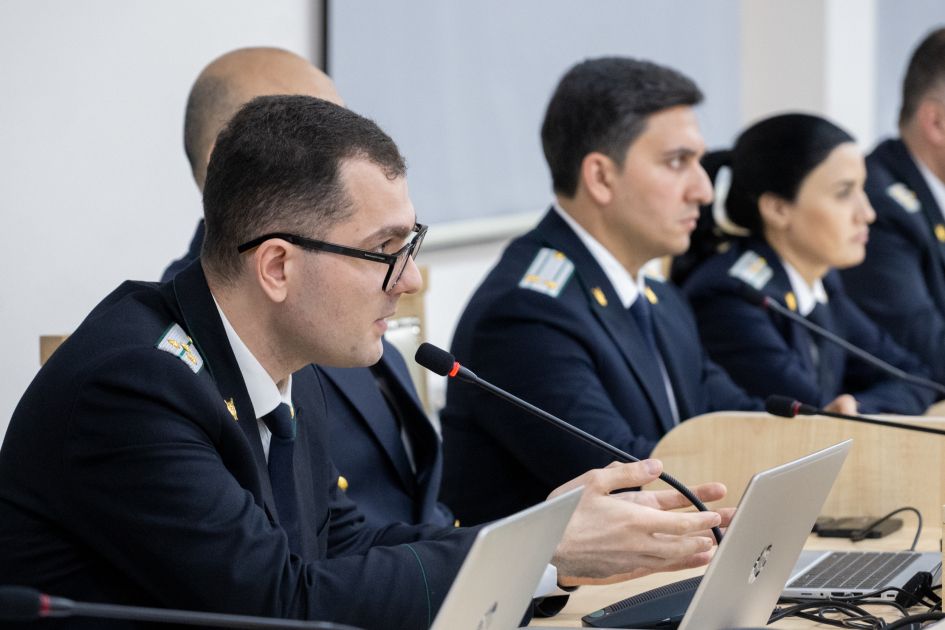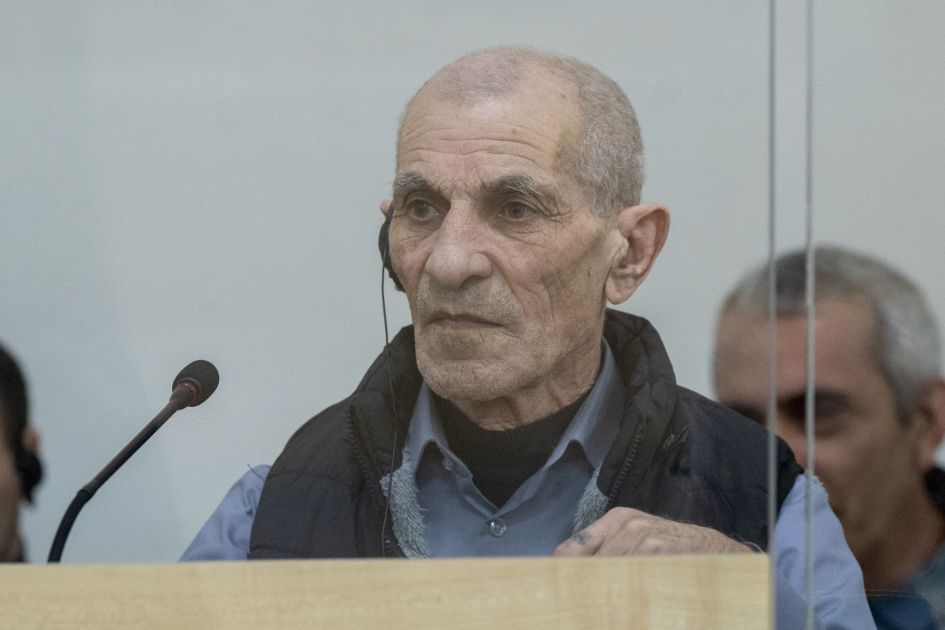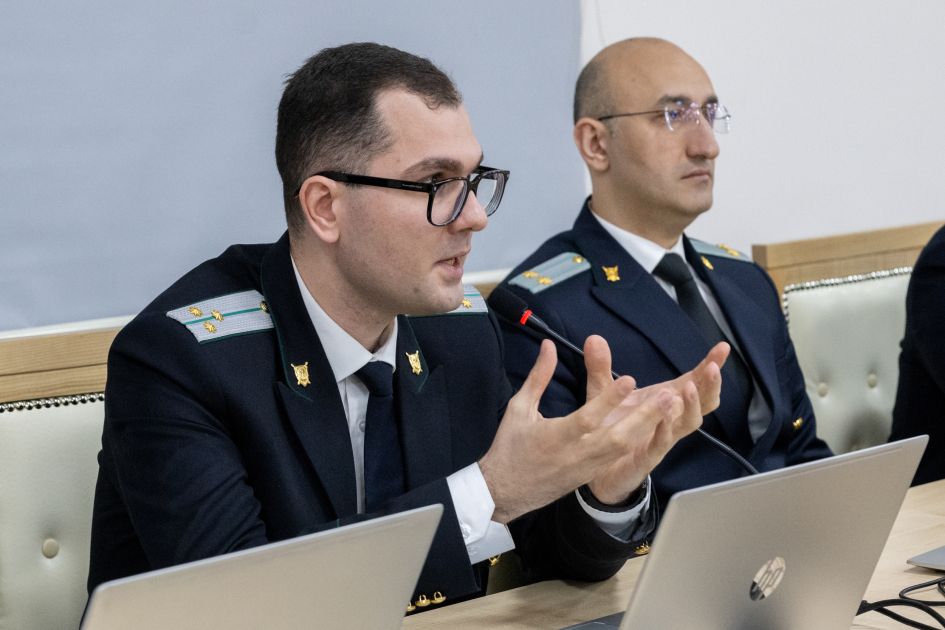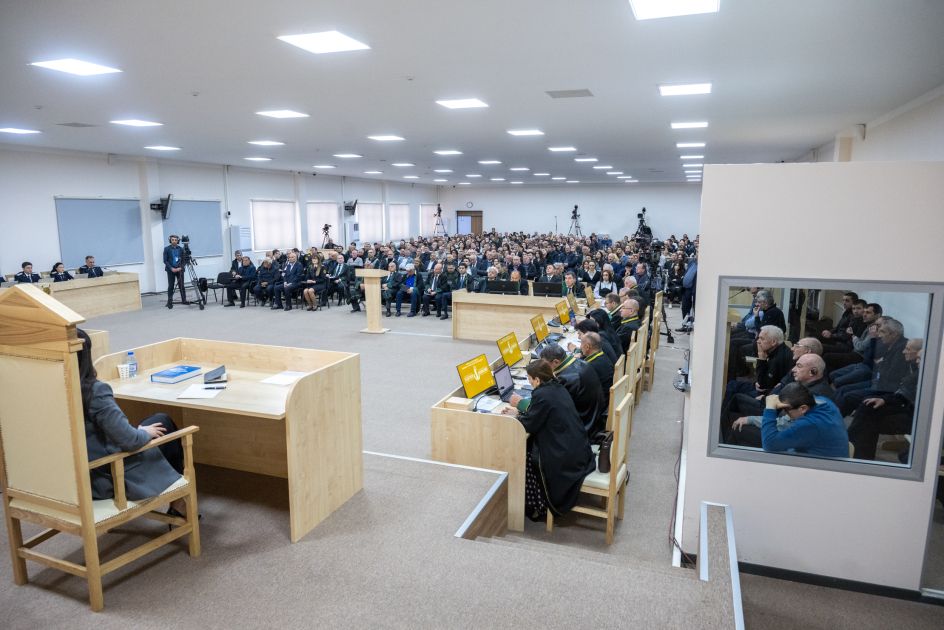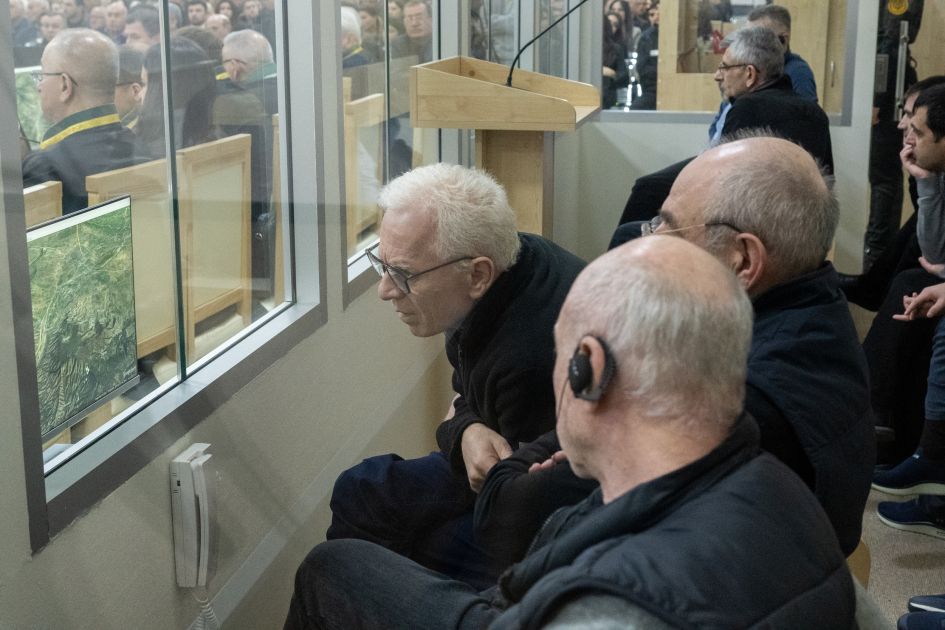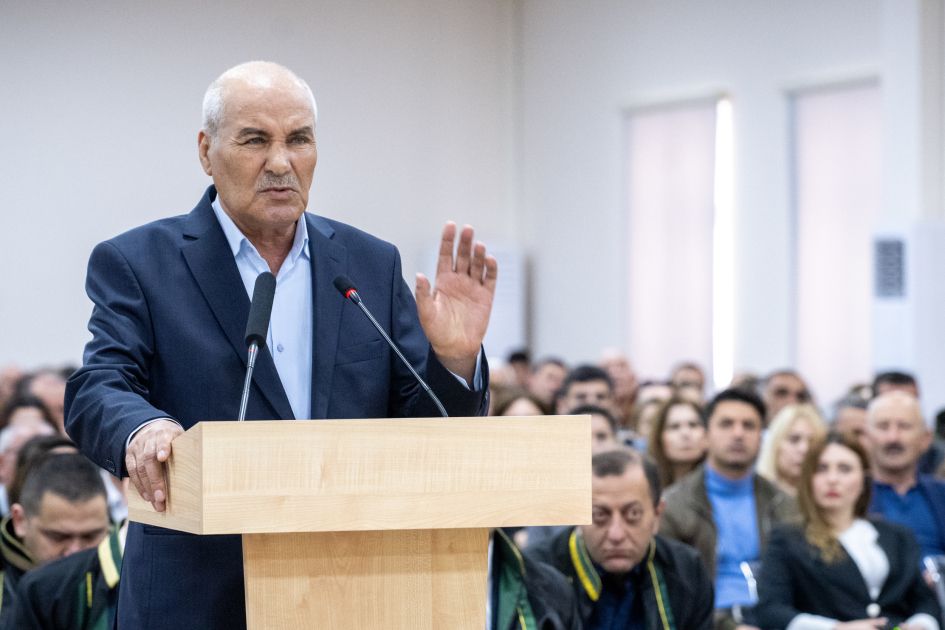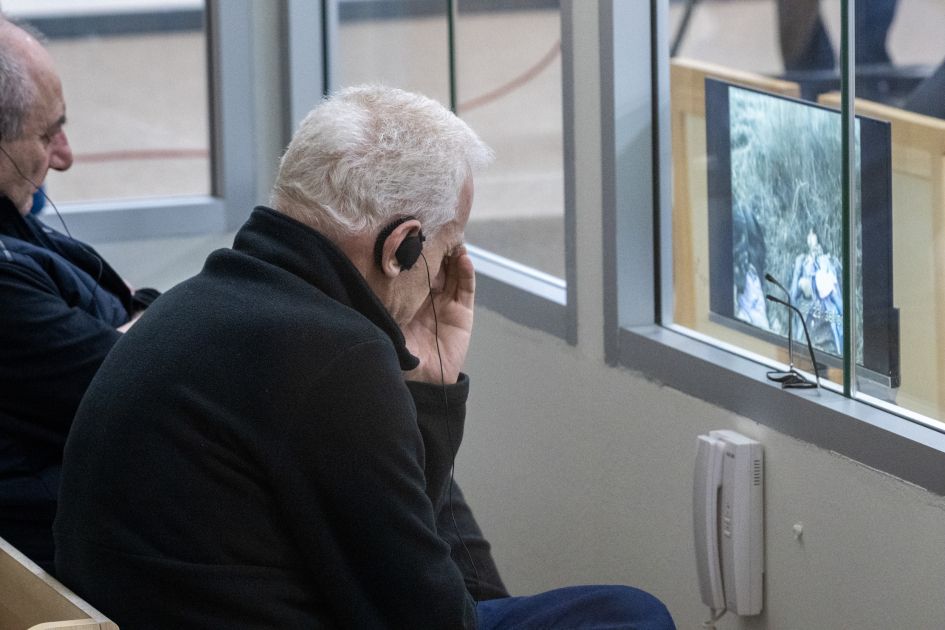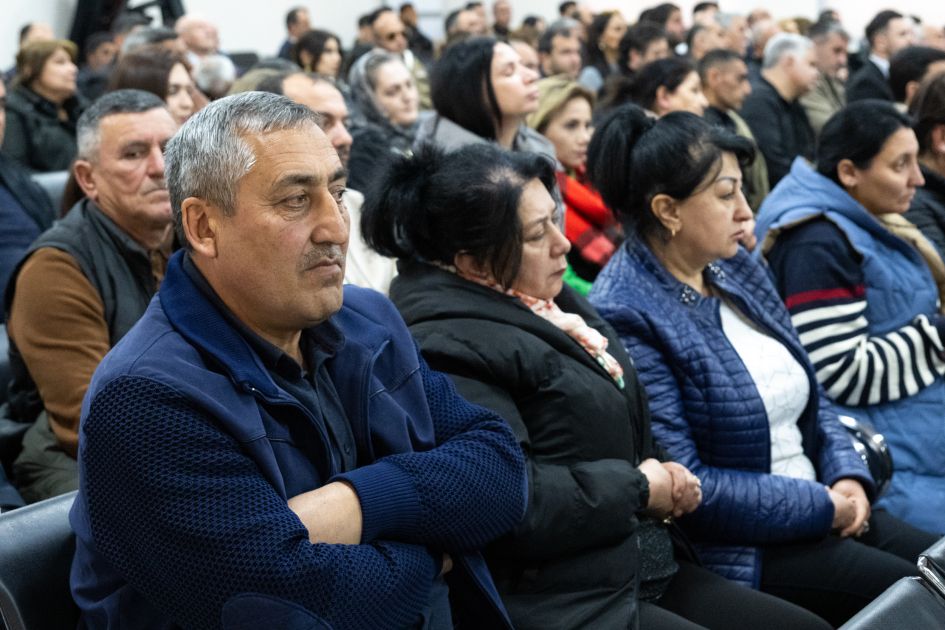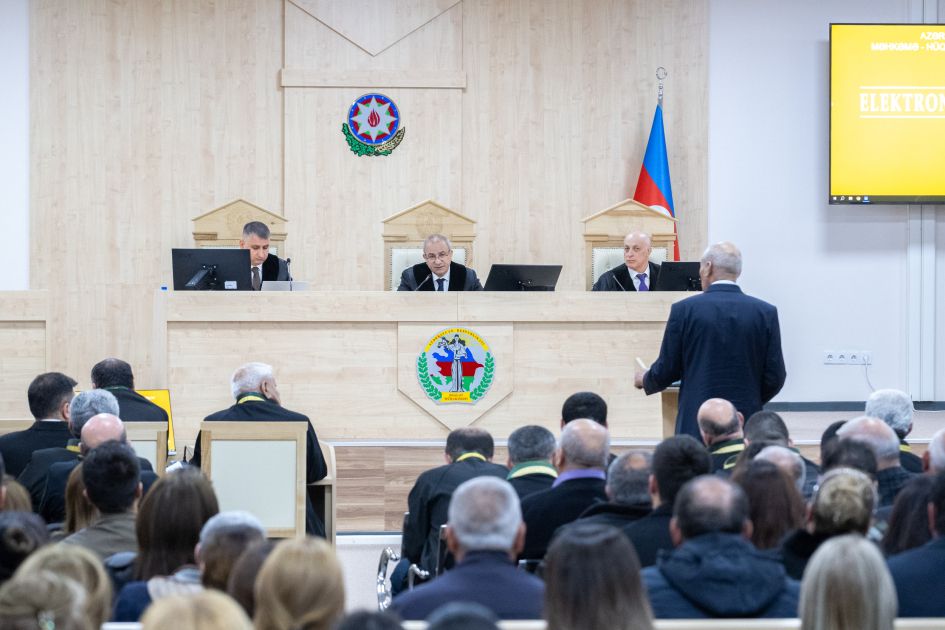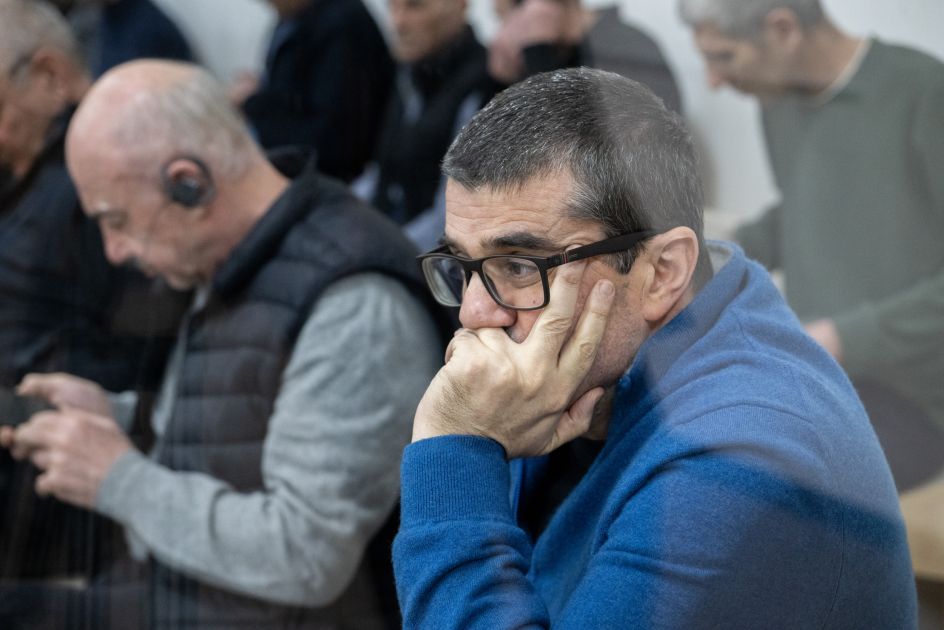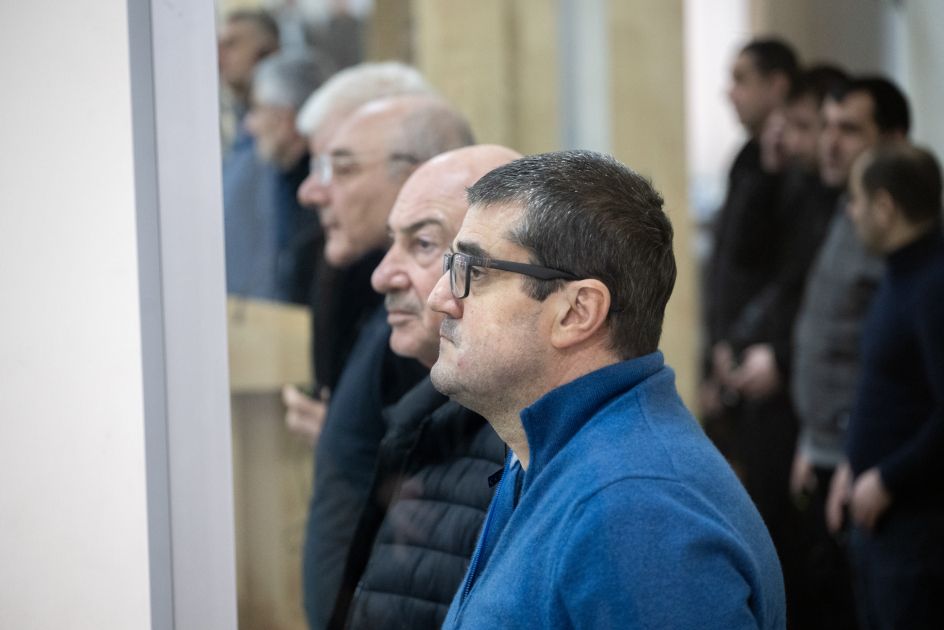Court reviews video evidence, survivor testimonies in Khojaly genocide case [PHOTOS]
![Court reviews video evidence, survivor testimonies in Khojaly genocide case [PHOTOS]](https://www.azernews.az/media/2025/04/18/17449951865130354868_1200x630.jpg)
The public hearing of the criminal cases against the citizens of the Republic of Armenia – Arayik Harutyunyan, Arkadi Ghukasyan, Bako Sahakyan, David Ishkhanyan, David Babayan, Levon Mnatsakanyan, and others – who are accused of committing crimes against peace and humanity, war crimes, including the planning and conducting of aggressive war, genocide, violations of the laws and customs of war, as well as terrorism, financing of terrorism, the violent seizure and retention of power, and numerous other crimes as a result of Armenia's military aggression against Azerbaijan, continued on April 18.
According to Azernews, the session at the Baku Military Court was held under the chairmanship of Judge Zeynal Agayev, with judges Jamal Ramazanov and Anar Rzayev (reserve judge Gunel Samadova). The accused were each provided with translators in their known languages and with legal defense.
The hearing was attended by the accused persons, their defense lawyers, some of the victims, their legal successors and representatives, and prosecutors representing the state prosecution.
Judge Zeynal Agayev first explained the rights and duties prescribed by the law to the victims participating in the process for the first time.
Then, the victims gave statements freely and answered questions posed by the prosecutors, their representatives, and the defense lawyers.
Victim Yashar Almmammadov stated that he was born in 1956 in the city of Khojaly and lived there with his family. He said he recognized defendants Bako Sahakyan, Arkadi Ghukasyan, and Madat Babayan.
Y. Almmammadov said that on February 25, 1992, he was on duty at a post near the railway section of the city and around 8 p.m., armored vehicles coming from the direction of Khankendi began to take positions around the city. By around 11 p.m., the city was under attack. He said that after Armenian forces entered the city with the support of the 366th Motor Rifle Regiment during the night, he and other residents fled to the forest. Many were killed as Armenian soldiers opened fire on them.
Answering questions from Tugay Rahimli, Assistant to the Prosecutor General for Special Assignments, Y. Almmammadov stated that on February 27, near the village of Pirjamal, they were taken hostage and brought to a stable. Later, around 50 more Khojaly residents were brought there. According to him, the captives were tortured in an unprecedented manner – he was beaten while being forced to lie on the snow. After being held for two days in Pirjamal, they were taken to Khankendi. The captives were beaten and tortured and on March 1, were transferred to Askeran. There, in the police department, an Armenian named Karo, who was the head of fire safety, beat him unconscious with a baton.
Y. Almmammadov was handed over to the Azerbaijani side on March 2, 1992.
In response to questions from state prosecutor Terane Mammadova, he said that during his captivity, his arm, finger, ribs, and leg were broken and he suffered other injuries. He also reported that Madat Babayan inflicted wounds on him with a bayonet, saying: “The Armenian soldiers, especially Madat Babayan himself, tortured me. While I was a captive, Madat came up to me, called me a Turk, kicked me, insulted me, and stabbed me with a bayonet.”
Answering questions from prosecutor Vusal Abdullayev, the victim noted that a woman named Khadija had both her legs amputated below the knees. “There were Meskhetian Turks living in Khojaly. Madat Babayan and the soldiers in his armed group shot and killed two Meskhetian Turk brothers before our eyes. They took some Azerbaijanis and beheaded them over graves, some they hanged in a church.”
Responding to questions from Vusal Aliyev, Senior Assistant to the Prosecutor General, Y. Almmammadov said that his brother Faiq Almmammadov was killed by Armenian soldiers and another brother, Namig Almmammadov, was taken captive and remains missing to this day.
The court also announced the medical forensic report related to Y. Almmammadov.
Afterward, another victim, Sovet Allahverdiyev, testified. He was born in 1954 in Khojaly and lived there. He said his father, two brothers, and a nephew went missing during the Khojaly genocide, and two other brothers and his mother were taken hostage.
Answering questions from Nasir Bayramov, head of a department in the State Prosecution Support Department of the General Prosecutor’s Office, he stated: “That night, from February 25 to 26, they blocked all roads so that we couldn’t escape, and committed genocide against all of us because we were Azerbaijani. 50 percent of those killed were murdered in the so-called ‘corridor’ area. It was claimed to be left open for civilians to leave.”
He said that bodies were brought from the forest to Aghdam. “Most of the corpses were unrecognizable. The skin on their heads was flayed, their brains and skulls shattered. We identified them by their clothes.”
He also said that in 2023, 18 bodies discovered in Khojaly were found with their hands and feet tied with wire.
The court examined investigation protocols related to the events of February 25–26, 1992.
Then, considering the sensitivity of the upcoming video footage regarding the Khojaly genocide, attendees with heart conditions were warned to leave the courtroom.
The videos showed bodies of men, women, children, and the elderly. Some bodies had their skin peeled off, eyes gouged out, and limbs severed. The viewing caused visible emotional distress in the courtroom.
Some of the accused demonstratively pretended to be affected by the videos.
Protocols related to the Khojaly genocide were then presented to the court.
During the examination of other documents, photos taken by photojournalist Victoria Ivleva and an article in “Izvestia” describing the event as a military achievement by Yerevan were shown.
A video interview was also presented where former Armenian Defense Minister and President Serzh Sargsyan admitted to British journalist Thomas de Waal that the event was an act of ethnic cleansing. Sargsyan said he had no regrets about what happened in Khojaly.
Prosecutor Tugay Rahimli, referencing Sargsyan’s remarks, stated that these confirm the genocide was carried out by Armenia in a deliberate and systematic manner.
Later, defendant Madat Babayan, whose participation in the Khojaly genocide was confirmed, was questioned.
He confirmed being in Khojaly on February 25–26, 1992, saying: “Our group leader, Henrik Tamrazyan, took us there. The aim was to expel Azerbaijanis from Khojaly.”
Babayan said their group had 20 people and that there were other groups as well. He remembered commanders Rembert Karapetyan and Valeri Sargsyan.
He also named group members Valeri Petrosyan, David Grigoryan, Albert Grigoryan, Shirin Shirinyan, and Spartak Akopyan.
He stated that all orders in Khojaly came from Arkadi Shirinyan, nicknamed “Kholostoy,” while Vanik Petrosyan gave direct orders to his group. “Vanik ordered us to shoot unarmed civilians and kill them. Vanik and Arkadi cut off people’s fingers and the ears of corpses.”
Answering questions from state prosecutor Fuad Musayev, Babayan confirmed that they came to Khojaly armed and used armored vehicles. He admitted to participating in the killing of unarmed civilians and said, “We made a mistake.”
He said he saw around 150 bodies, including children, elderly, and women, and that the bodies were collected by Armenian soldiers and loaded into trucks.
At that point, victim Yashar Almmammadov addressed Babayan: “My brother Namig was taken by your group. Where did you take him? Tell us at least where his remains are. His wife was pregnant at the time and gave birth to a son. Now, that boy is 33 years old and has gone grey from grief. Where is my brother? Tell me!”
Babayan claimed he did not know Namig Almmammadov.
Victims' representative Shaig Huseynov objected to defendant David Ishkhanyan assisting Babayan in answering questions, and Judge Zeynal Agayev changed Ishkhanyan’s seat.
Then, Babayan’s initial testimony from the preliminary investigation and related video footage were presented.
The next court session is scheduled for April 21.
Note: Criminal charges have been brought against 15 ethnic Armenian defendants for numerous crimes committed during the aggressive war waged under the direct leadership and participation of the Armenian state, its government bodies, officials, armed forces, and illegal armed groups, based on their orders, instructions, and support – violating both domestic and international legal norms on the territory of Azerbaijan.
These individuals – Arayik Vladimiri Harutyunyan, Arkadi Arshaviri Ghukasyan, Bako Sahaki Sahakyan, David Rubeni Ishkhanyan, David Azatini Manukyan, David Klimi Babayan, Levon Henrikovich Mnatsakanyan, Vasili Ivani Beglaryan, Erik Roberti Ghazaryan, Davit Nelsoni Allahverdyan, Gurgen Homeri Stepanyan, Levon Romiki Balayan, Madat Arakelovich Babayan, Garik Grigori Martirosyan, and Melikset Vladimiri Pashayan – are charged under various articles of the Criminal Code of the Republic of Azerbaijan, including but not limited to: planning and waging aggressive war, genocide, crimes against humanity, war crimes, terrorism, and illegal armed formation.
Here we are to serve you with news right now. It does not cost much, but worth your attention.
Choose to support open, independent, quality journalism and subscribe on a monthly basis.
By subscribing to our online newspaper, you can have full digital access to all news, analysis, and much more.
You can also follow AzerNEWS on Twitter @AzerNewsAz or Facebook @AzerNewsNewspaper
Thank you!

